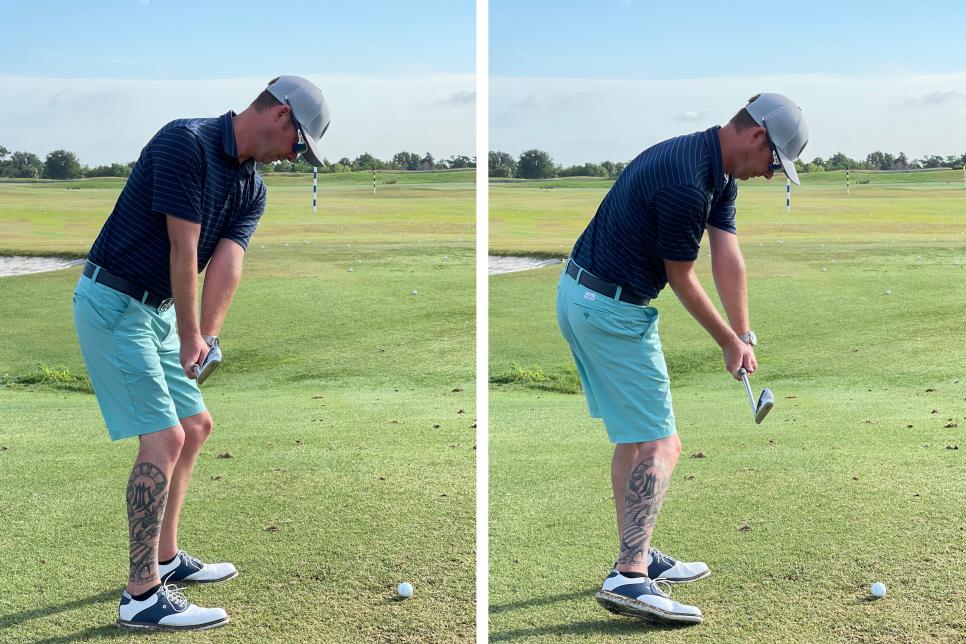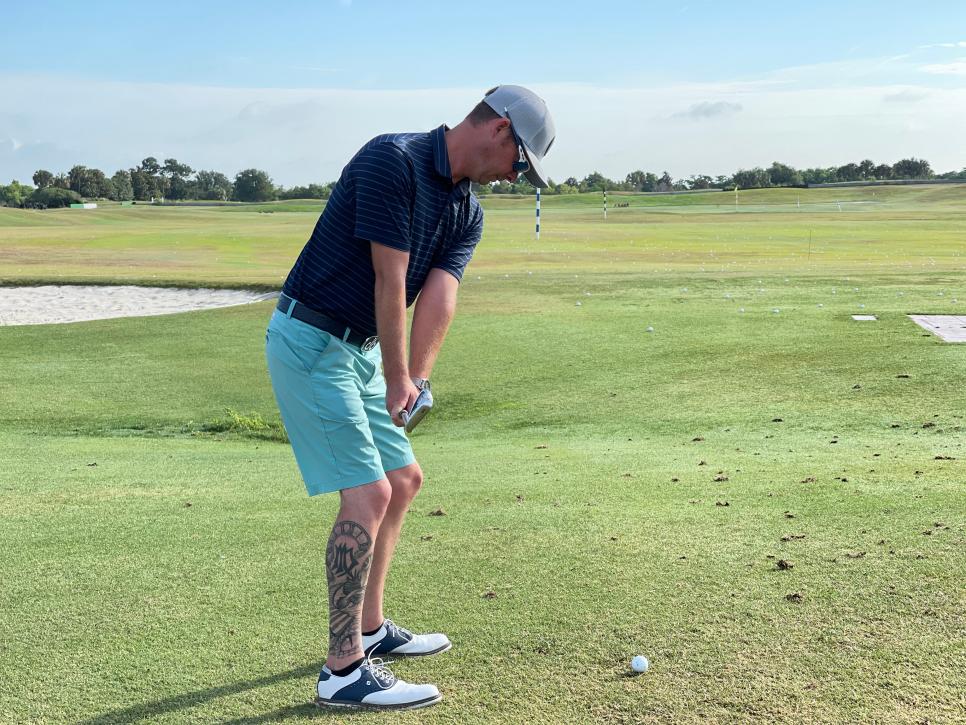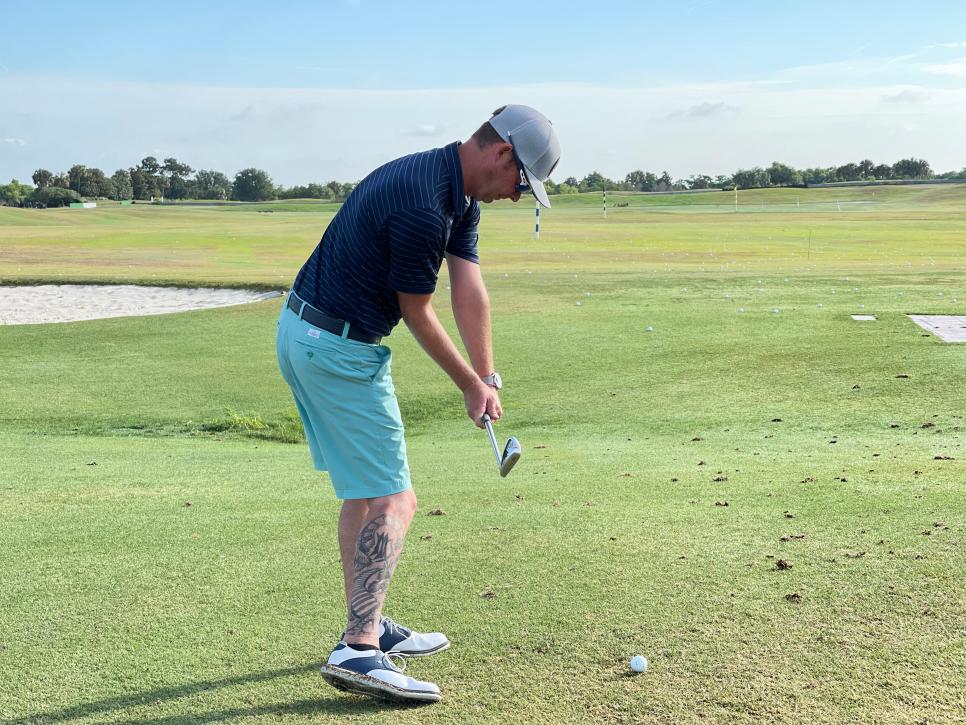Approach Shots
Straighten out your slice with two simple keys

Narrow fairways and a thick second cut seem to be a consistent theme among U.S. Open courses. While these challenging conditions test elite players' accuracy and control, those of us watching from the sidelines tend to struggle in the same areas.
We spoke with Bill Schmedes III, a Golf Digest Best Young Teacher, to learn how you can keep your ball out of the rough when playing in similar conditions. His tips will help you straighten your shots.
For starters, Schmedes explains that accuracy depends on your ball having less deviation, and that starts with better contact. “The closer the ball is to the toe or heel of the club, the more the ball will curve,” he says. “That’s why it’s extremely important that you hit the ball solidly.” According to Schmedes, golfers who fade or slice the ball can achieve better contact by strengthening their grip and improving their face-to-path relationship.
Hand placement is crucial
“A majority of golfers often slice the ball because they’re gripping the club too much in their palm,” Schmedes says. This weakens your grip and leaves the face open at address, which creates a domino effect in your swing.
“When the clubface gets open, subconsciously, we react to it,” Schmedes explains.
He says that when this happens, most golfers will try to get the golf club back in front of them during the downswing and that this is where you’ll see players throw their hands to square the face. As a result, the club ends up working across the ball and left, creating the out-to-in path that leads to a nasty slice. To strengthen your grip, Schmedes says to hold the club more in your fingers with your top hand, position your lead thumb on the inside and place the trail hand a bit underneath.
Check your clubface
With a stronger grip, you’ll finally be able to get the clubface square to the path. What does that mean exactly? Schmedes when the shaft is parallel to the ground, the angle of the clubface and angle of tilt in your upper body should match up. “If the clubface orientation matches the spine, golfers will have a better opportunity to move the club more neutral into impact, or slightly inside to out,” Schmedes explains.
Schmedes’ two-part checkpoint system is designed to improve your face-to-path relationship and create consistent, center-face contact. Start by getting set up to a ball and take the club back slowly. Once the shaft of your club is parallel to the ground, pause to take a look at your clubface and ensure that it is slightly toe-down (pictured below).

Continue making your swing at a slow pace, and pause again when your club reaches parallel in the downswing to check that your clubface is still slightly toe-down (pictured below).

Your phone is a great tool to use while practicing. Record yourself moving through your swing and use the footage to double-check that your clubface and spine angle match up at parallel during your backswing and downswing.

